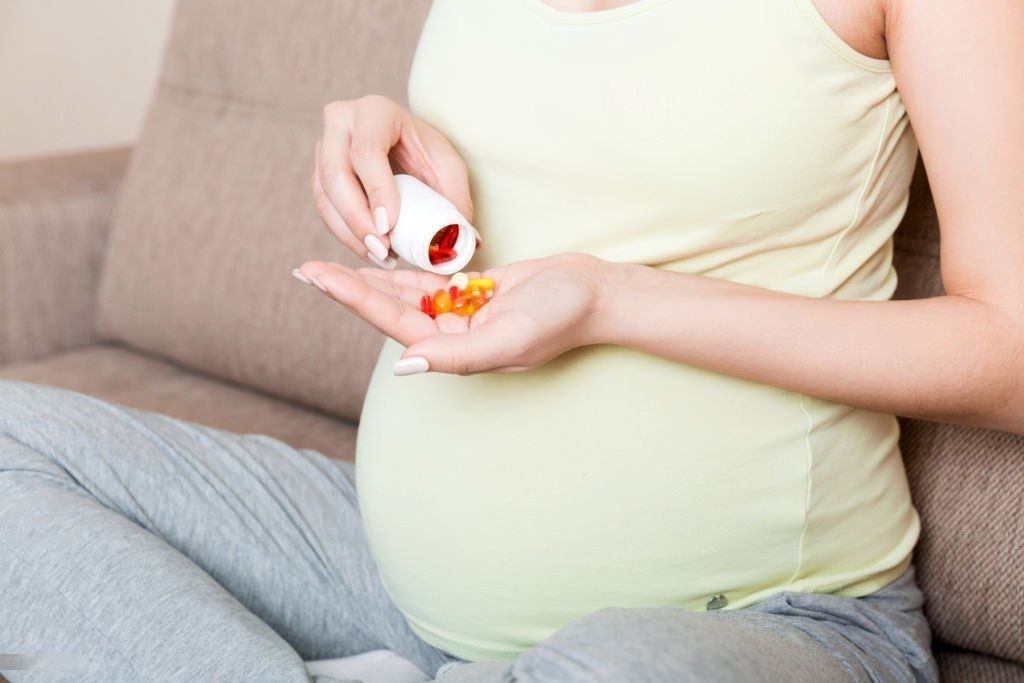The Top Supplements for Boosting Fertility and Pregnancy
Women can improve their chances of conceiving and having a healthy pregnancy by taking the correct vitamins and living a healthy lifestyle.

Fertility and pregnancy are two of the most crucial periods in a woman's life. For women who desire to create a family, the ability to conceive and carry a healthy pregnancy to term is critical. Several nutrients can help increase fertility and support a healthy pregnancy. This article will go through the best supplements for enhancing fertility and assisting with pregnancy.
1.Folic acid
Folic acid is a B vitamin that is essential for foetal development. To help avoid neural tube defects in their kids, women of reproductive age should take 400 micrograms of folic acid daily. Spina bifida, which affects the baby's spinal cord and brain, is one of the most serious health disorders caused by neural tube defects. Folic acid can be found naturally in leafy green vegetables, citrus fruits, and fortified cereals, but it can also be obtained as a supplement.
2. Omega-3 fatty acids
Omega-3 fatty acids are essential fatty acids that are important for brain development and overall health. They are found in fatty fish, such as salmon, tuna, and sardines, as well as in flaxseeds and chia seeds. Omega-3 fatty acids have been shown to help regulate hormones and improve egg quality in women. They can also reduce the risk of preterm labor and postpartum depression.
3. Coenzyme Q10
Coenzyme Q10 (CoQ10) is an antioxidant that is essential for energy production in the body. It is found in high concentrations in the mitochondria of cells, which are responsible for producing energy. CoQ10 has been shown to improve egg quality and ovarian function in women. It can also reduce oxidative stress, which can damage cells and lead to infertility.
4. Vitamin D
Vitamin D is important for bone health, but it also plays a role in fertility and pregnancy. Vitamin D helps the body absorb calcium, which is essential for fetal bone development. It also plays a role in regulating hormones and improving immune function. Low levels of vitamin D have been linked to infertility, miscarriage, and preeclampsia. Vitamin D can be found in sunlight, fortified foods, and supplements.
5. Iron
Iron is essential for the production of red blood cells, which carry oxygen to the body's tissues. During pregnancy, the body needs more iron to support the growth and development of the baby. Iron deficiency anemia can cause fatigue, weakness, and complications during pregnancy. Iron can be found in red meat, poultry, fish, beans, and leafy green vegetables. Iron supplements may also be recommended during pregnancy.
6. Zinc
Zinc is important for fertility and fetal development. It plays a role in cell division, DNA synthesis, and immune function. Zinc deficiency has been linked to infertility, low birth weight, and preterm labor. Zinc can be found in oysters, beef, pork, chicken, beans, and fortified cereals. Zinc supplements may also be recommended for women who are trying to conceive or are pregnant.
7. Probiotics
Probiotics are beneficial bacteria that live in the gut. They help support immune function, regulate digestion, and reduce inflammation. Probiotics may also play a role in fertility and pregnancy. Studies have shown that probiotics can reduce the risk of gestational diabetes, preterm labor, and preeclampsia. Probiotics can be found in fermented foods, such as yogurt, kefir, and sauerkraut, as well as in supplements.
8. DHEA
DHEA (dehydroepiandrosterone) is a hormone that is produced by the adrenal glands. It plays a role in the production of estrogen and testosterone and can help improve fertility in women with diminished ovarian reserve. DHEA supplements should only be taken under the guidance of a healthcare professional, as they can have side effects and may interact with other medications.
SUMMARY
In conclusion, there are several supplements that can help boost fertility and support a healthy pregnancy. Folic acid, omega-3 fatty acids, CoQ10, vitamin D, iron, zinc, probiotics, and DHEA are all important nutrients that can help improve reproductive health. It is important to talk to a healthcare professional before starting any supplement regimen, as some supplements can have side effects or interact with other medications. With the right combination of supplements and a healthy lifestyle, women can increase their chances of conceiving and having a healthy pregnancy.
Jayti Shah is a Clinical Nutritionist with a master's degree in Clinical Nutrition and Dietetics. She is a member of the Indian Dietetic Association (IDA). Over the last 9 years, she has helped 400 clients in their clinical and weight loss journeys. She works with SocialBoat as a nutrition consultant.
At SocialBoat, we offer custom diet plans and guided workouts to help you achieve your goals in a 360-degree approach. Our gamified experience ensures that you don’t find workouts boring and we reward you for being consistent with your efforts.

REFERENCES
- Gaskins, A. J., & Chavarro, J. E. (2018). Diet and fertility: a review. American Journal of Obstetrics and Gynecology, 218(4), 379-389.
- Chiu, Y. H., et al. (2018). Omega-3 fatty acid supplements in women at high risk of preterm birth: a meta-analysis of randomized controlled trials. BMC Pregnancy and Childbirth, 18(1), 178.
- Centers for Disease Control and Prevention. (2020). Folic Acid. Retrieved from https://www.cdc.gov/ncbddd/folicacid/index.html
- Bentov, Y., et al. (2014). The effects of mitochondrial function and DNA copy number on miscarriage risk. Fertility and Sterility, 101(1), 236-242.
- Aghajafari, F., et al. (2019). Association between maternal serum 25-hydroxyvitamin D level and pregnancy and neonatal outcomes: systematic review and meta-analysis of observational studies. BMJ, 366, l4378.
- Rush, D. (2014). Maternal and fetal consequences of iron deficiency and iron overload during pregnancy. Nutrition Reviews, 72(7), 415-428.
- Bao, W., et al. (2015). Zinc intake and risk of pregnancy-induced hypertension: a meta-analysis. Journal of Human Hypertension, 29(6), 335-341.
- Barrett, H. L., & Nitert, M. D. (2018). Probiotics for preventing gestational diabetes. Cochrane Database of Systematic Reviews, (2).
